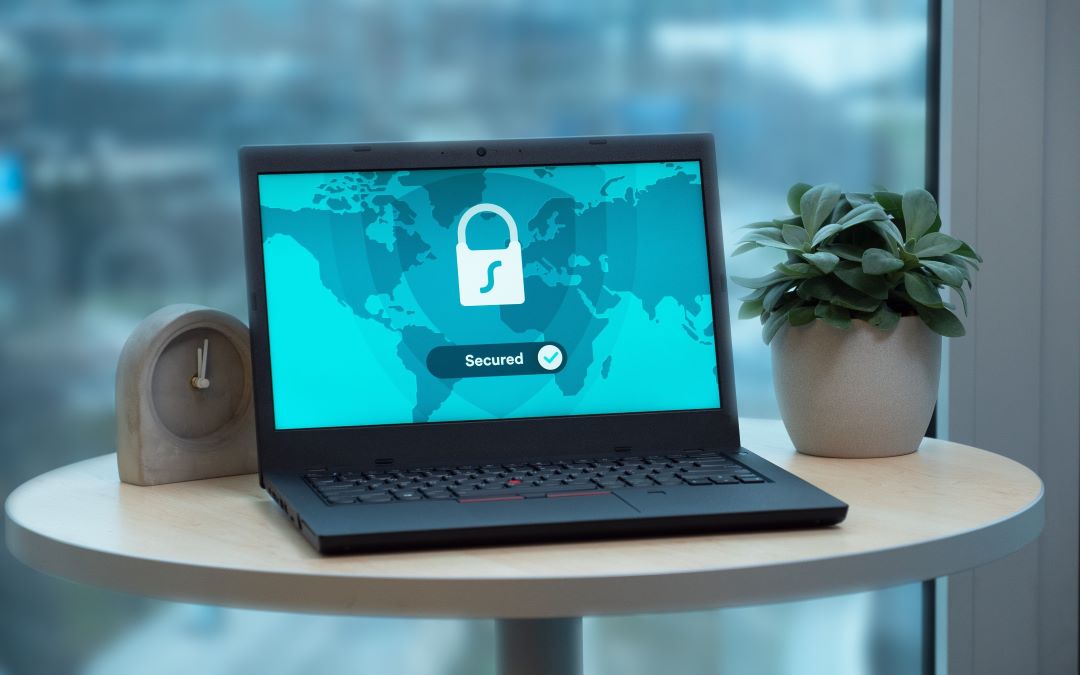
The growing threat of cybercrime has become an ever-present concern for businesses, and solicitors are no exception. As technology advances, the risks posed by malicious actors also increase, placing a strain on IT support teams to protect their clients from data theft and other online threats. With recent studies conducted by Action Fraud from the latest edition which is based on a report from September 2020 showing that 75% (based on a snapshot of 40 businesses) of firms have experienced successful attacks in the past three years, it is more important than ever to understand the nature of these crimes and how best to defend against them.
In this blog post, we will explore the various types of cyberattacks that target law firms as well as discuss some key cybersecurity measures that can help mitigate potential damages. We will also provide some statistics for a better understanding of the landscape and a glossary of terms related to cyber security for those who may not be familiar with such concepts. We will also discuss the importance of IT Support for Solicitors.
From an Anatomy of Crypto-Enabled Cybercrimes
From the report created by Lin William Cong, Campbell R. Harvey, Daniel Rabetti and Zong-Yu Wu we can take the following insight on the subject of Cybercrime.
Training and Mitigation:
Eight firms (20%) had never provided specific cybersecurity training to their staff. More than half did not keep records of who had received such training. Most firms implemented appropriate mitigation measures and the remainder were still implementing new processes and controls.
Technology:
93% of the firms had firewalls in place, with more than half having firewalls around both individual devices and a wider firewall around their overall systems. All firms undertook some form of backup exercise, while the majority (87%) were able to show they made active use of anti-virus software.
Firm Size:
The firms that were part of the study ranged in size. 22 had 1-4 partners, 13 had 5-25 partners, and 5 had more than 25 partners.
Cyber Attacks:
In September 2019, Action Fraud reported an annual total of 43,717 referrals about fraud and cybercrime.
Firm Preparation:
27 firms had produced disaster recovery plans. 19 firms had undergone penetration testing by an external party. 15 firms had taken internal steps to stress-test processes and procedures. 14 firms had taken no steps to test or audit their processes and/or procedures.
As you can see from the above report not everything is perfect, there are certain steps businesses take to mitigate the risks of cybercrime such as business continuity but surprisingly 13% do not have antivirus software installed, which is one of the most basic and essential tools to combat malware and viruses. With further 20% never attempted to train their staff about cyber security.
What types of attacks are the biggest headaches for law firms?
Phishing Attacks:
These are typically carried out via email and designed to trick recipients into revealing information like usernames, passwords, or credit card details. The emails often appear as if they are from a legitimate source which the recipient trusts.
Ransomware Attacks:
In these attacks, cybercriminals infiltrate a network and encrypt the firm’s data, then demand a ransom in exchange for the decryption key. This can lead to substantial downtime and financial losses, not to mention potential damage to the firm’s reputation.
Data Breaches:
Whether through hacking, social engineering, or inside jobs. Breaches involve unauthorized access to confidential information. This can lead to loss of client trust, legal penalties, and other severe consequences.
Malware Attacks:
This includes viruses, worms, Trojans, and other malicious software that can damage systems, steal information, or create vulnerabilities for further exploits.
About the Legal Industry in the UK
The increasing sophistication of cybercriminals has made IT support for solicitors a critical component of business security. According to the SRA report, a total of 222,994 individuals are registered as either solicitors or practising solicitors in the UK. Of those, 222,994 are solicitors and 161149 are practising. This makes IT support for legal firms even more important, as they are responsible for a large portion of the legal profession in the UK.
Why do cybercriminals have an interest in the law firms
The evolution of cyber threats has been rapid and complex, with criminals becoming increasingly sophisticated in their tactics. Initially, the focus of these attacks was mostly on simple scam emails targeted at anyone that slowly evolved into more advanced attacks as the cybercriminals realised that there were easier ways of making money.
REvil was one of the most prolific ransomware groups that have been active since 2019 and has since become one of the most successful criminal organizations in history by targeting numerous companies, including law firms, in the past few years and have successfully extorted millions of dollars from their victims.
Their modus operandi involves using a ransomware-as-a-service model which allows them to attack multiple victims and demand large amounts of money in exchange for the decryption keys. At the start, Revil was performing all the attacks on their own, from initial infection, through encryption and then dealing with payments. But soon people behind the gang spotted that providing the back end to other cybercriminals is a much better option. Instead of handling all steps they only concentrated on encryption and processing payments from victims.
Solicitors in the Crosshairs
Solicitors are responsible for providing legal advice, representing their clients in court proceedings, and drafting legal documents. However, law firms also have a unique responsibility to protect the confidential data of their clients. This includes any sensitive information that may be released during the course of a case or legal proceeding.
Solicitors by their nature have access to a lot of data that is confidential, such as business contracts, and documents about victims and vulnerable people.
Cybercriminals such as the defunct gang REvil had a very brutal approach. Once they managed to gain access to a company’s resources they would steal the data, encrypt it on local computers and servers and request ransom in order to release the data.
If the legal firm would not enter into negotiation intimidation techniques would be employed. From calls and emails advising the victim that not only they will lose the data but added that it will be made public. It is easy to imagine the damage to any legal business if such a breach occurred.
Duty of care
Legal firms have a duty of care to their customers and are very closely observed by the courts and regulators.
The legal industry is very highly regulated which in this case is a double-sided blade. On one side if there is a breach the customers of the law firm are shielded and the law firm must ensure that its data security is top-notch, which is difficult, especially for small law firms.
On the other side, legal firms can’t use a lack of resources or knowledge as an excuse for a lack of protection. For the legal firm, it is vital importance to have robust protection part of that is an infrastructure strategy.
IT Support for Solicitors
As you can see law firms are a prime target due to the nature of this type of business. For that reason, the legal sector has to pay a lot of attention to the security of client’s data.
A large law firm can afford to have an “in-house team” whereas small and medium businesses should consider support services from a managed support provider such as our team at Operum.Tech.
A support company should provide a support package such as remote monitoring, helpdesk support and on-site support. Support solutions should always consist of at least a backup or business disaster recovery. Additionally, the bonus is where the customer can get unlimited remote and unlimited onsite support.
Cyber Essentials and Beyond
It is highly recommended that the legal firm will obtain cyber essentials certification as this will make it easier to be in line with compliance and the long run provide a competitive advantage to such a firm.
ISO 27001
Many firms from the legal sector that are around 20 people could consider going even step further and considering ISO27001.
ISO certification will provide law firms with trust that they are well-run and secure. With our team as an IT partner, this is easier as we can help you stay constantly compliant and use the Drata.com platform that automates compliance processes.
The next step
If your law firm is looking for an IT partner that can help you achieve higher security and compliance standards, look no further than Operum.Tech. Our team of IT experts are available for both remote and onsite support, as well as unlimited support packages. We also have the Drata.com platform that automates and simplifies the compliance process for you. Contact us today to get started.
Contact us now: 0800 3896798 or drop us a line at [email protected]. We look forward to working with you!
References:
An Anatomy of Crypto-Enabled Cybercrimes
https://wp.lancs.ac.uk/finec2023/files/2023/01/FEC-2023-017-Daniel-Rabetti.pdf



